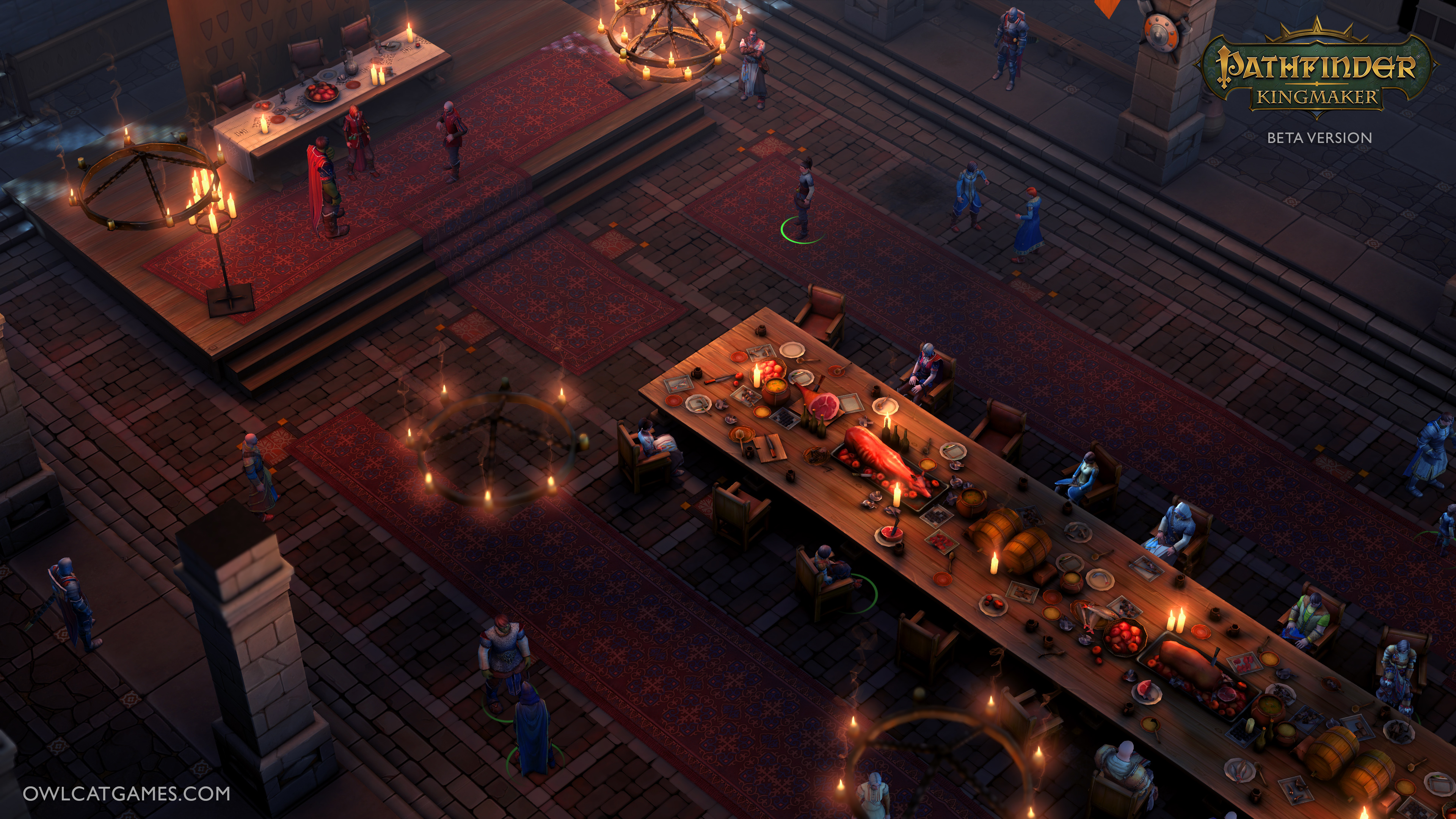Pathfinder: Kingmaker Blends Role-Playing, City Management
Ruling your realm in Pathfinder: Kingmaker is a vital, and potentially perilous, part of the experience.
Here at Tom’s Guide our expert editors are committed to bringing you the best news, reviews and guides to help you stay informed and ahead of the curve!
You are now subscribed
Your newsletter sign-up was successful
Want to add more newsletters?

Daily (Mon-Sun)
Tom's Guide Daily
Sign up to get the latest updates on all of your favorite content! From cutting-edge tech news and the hottest streaming buzz to unbeatable deals on the best products and in-depth reviews, we’ve got you covered.

Weekly on Thursday
Tom's AI Guide
Be AI savvy with your weekly newsletter summing up all the biggest AI news you need to know. Plus, analysis from our AI editor and tips on how to use the latest AI tools!

Weekly on Friday
Tom's iGuide
Unlock the vast world of Apple news straight to your inbox. With coverage on everything from exciting product launches to essential software updates, this is your go-to source for the latest updates on all the best Apple content.

Weekly on Monday
Tom's Streaming Guide
Our weekly newsletter is expertly crafted to immerse you in the world of streaming. Stay updated on the latest releases and our top recommendations across your favorite streaming platforms.
Join the club
Get full access to premium articles, exclusive features and a growing list of member rewards.
SEATTLE – I first saw Pathfinder: Kingmaker at GDC earlier this year, and I generally liked what I saw. The game seemed like a modern take on retro RPGs like Baldur’s Gate, where you recruit a party of adventurers, explore a big fantasy world, and tackle a complex political narrative. The game’s big differentiator — creating and managing your own kingdom — seemed more like icing on the cake. But now that I’ve had a chance to see it firsthand, ruling your realm in Kingmaker is a vital, and potentially perilous, part of the experience.

I got a press demo from Pathfinder: Kingmaker’s developers at PAX West, where I learned that city management was much more integral to the game than I initially thought. The game doesn’t simply hand you a kingdom and let it generate wealth over time. Instead, you’ll have to invest money in buildings, lay out the architecture, deal with the populace, treat with foreign envoys and more.
MORE: The Best Games of PAX West
(The rest of the gameplay was much the same as it was back in March. You’ll create an adventurer, recruit a party, build up relationships with your companions, and explore more than 200 discrete areas as you tackle a variety of story missions and side quests. The gameplay consists of real-time-with-pause combat, like in the old Infinity Engine games. You can read more about it in my hands-on post.)
I first realized just how in-depth the city management aspect was when a developer opened up a map of his kingdom. In games like Baldur’s Gate II and Pillars of Eternity, you have a stronghold, and you can invest money in its defensive and aesthetic features. But Pathfinder: Kingmaker is on another level entirely. Instead of a list of upgrades, the game showed an entire city, building by building, with a detailed menu of how to add more structures, how much each one would cost and what benefits they could confer on the burgeoning kingdom.
Planning a city isn’t just about cramming a building into every inch of available space, either. Structures can affect one another, meaning that you’ll want to optimize your building placement. A barracks next to a tavern, for example, will keep soldiers happy and business owners in the black. But a tavern by itself on the outskirts of town is not going to do much good for either your townsfolk or your coffers.
Your party members and other recruitable NPCs are also instrumental to keeping your citizens happy. You can assign these characters to various posts in your kingdom — treasurer, general, diplomat and so forth — and each character will have various strengths and weaknesses. You can also assign party members to carry out assignments. For example, a mining consortium requested an arbiter for a dispute. The developer sent one of his party members, only to discover a few days later that she’d failed in her task. These various successes and failures will add up over time, and determine what kind of allies and resources your kingdom can call upon.
What surprised me most about building a kingdom in Pathfiner: Kingmaker is that it’s not just an extra feature; it’s inexorably tied to your game’s overall success. If you allow your kingdom to fall into disrepair and ruin, the game will end. It’s not enough to defeat enemies and advance the plot; you also have to demonstrate your value as a good ruler.
Get instant access to breaking news, the hottest reviews, great deals and helpful tips.
Granted, what constitutes a “good” ruler is subjective. Your story choices and character disposition will determine what kind of monarchy you run. Good-aligned characters may host carnivals and dispatch knights to patrol the streets; evil-aligned characters may host public executions and dispatch monsters to keep the populace in line. Even neutral characters can build up havens for financiers and mercenaries. As long as you keep your lands prosperous, any moral alignment can get the job done.
Pathfinder: Kingmaker will be out on PC, Mac and Linux on September 25 for $40. If you absolutely can’t wait that long, there is indeed a tabletop campaign of the same name that you can pick up.

Marshall Honorof was a senior editor for Tom's Guide, overseeing the site's coverage of gaming hardware and software. He comes from a science writing background, having studied paleomammalogy, biological anthropology, and the history of science and technology. After hours, you can find him practicing taekwondo or doing deep dives on classic sci-fi.
 Club Benefits
Club Benefits










